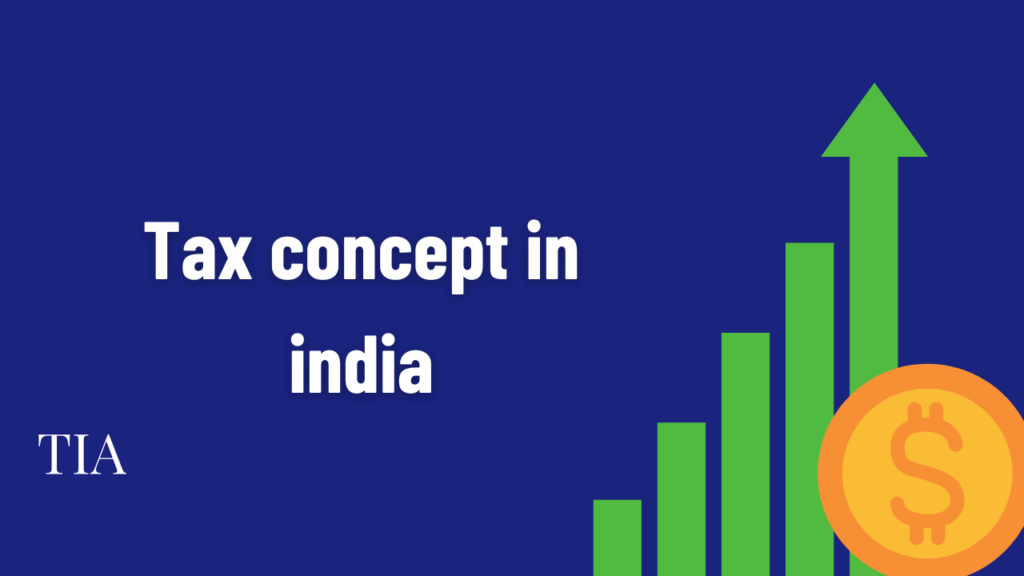Tax concept is an important fact for any country. Taxes are collected in a country for the prosperity and development of the people in that country. Tax is a compulsory financial contribution collected by the government from individuals or organizations. They are considered as taxpayers. This collected revenue acts as a source to finance projects for the benefit of a large population, the public interest, and social welfare.
Table of Contents
What are the tax concepts in India?

The entire tax system is called a tax concept. In which taxation has been formed. Taxes are simply your contribution towards maintaining and developing the infrastructure and services of society that benefit every citizen in the country.
All kinds of persons, individuals, companies, and non-profit organisations are subject to paying their share of direct and indirect taxes to the government. Thus, it is important for everyone to understand the tax concepts.
Types of Taxation in India
Tax is a compulsory fees imposed by a government. Which money is used for development and maintenance of infrastructure, salaries and pensions of government employees, ministry, police, administration and judiciary services, etc.
There are basically two types of taxes in India: which are Direct Tax and Indirect Tax. Direct taxes are charged directly on a person’s income. These taxes are computed based on your taxable income. Taxable income is your total income minus any exemptions allowed by the Income Tax law.
Meanwhile, Indirect taxes are levied on the goods and services consumed at various stages of production, distribution, and consumption. These taxes are included in the price of the product.
Direct Taxes
Some of the common direct taxes in India are:
Income Tax: It is the main direct tax which is the primary source of revenue to the government. It is levied on your annual income, combining income from different sources like salaries, investments, rents, and business profits. The tax slab depends on your income.
| Tax Slabs | Income Tax Rates |
|---|---|
| Rs. 3,00,001 – Rs.6,00,000 | 5% (tax rebate under section 87A) |
| Rs. 6,00,001 – Rs. 9,00,000 | 10% (tax rebate under section 87A below Rs. 7 lakh) |
| Rs.9,00,001 – Rs.12,00,000 | 15% |
| Rs. 12,00,001 – Rs.15,00,000 | 20% |
Capital Gains Tax: It applies to profits from the sale of assets like property, stocks, or mutual funds held for more than a specific period. The tax rate under capital gains is a special tax rate different from the tax slabs.
Corporate Tax: Tax levied on the profits of companies registered in India is known as Corporate Tax. It is levied on the net profits of the companies after considering the changes as per Income Tax regulations.
Indirect Taxes
Some of the common types of indirect taxes in India are:
Goods and Services Tax: GST is the most common tax levied on the supply of goods and services. It has been a replacement for various indirect taxes, making the tax structure simple. Mostly 3%, 5%, 12%, 18%, and 28% GST rates are charged on goods in India. As in 6%, 12%, and 18% GST on food items, and 3% GST on gold. Types of are SGST, CGST, IGST and UTGST.
Central Excise Duty: Excise Duty is a small tax source. It is levied on the production of certain goods within India, like tobacco products.
Customs Duty: Customs Duty is levied on imported goods entering the country. It is based on the value of import.
Conclusions
Other than the direct and indirect taxes, there is a property tax. It is an annual tax levied by local government bodies on the ownership of a property. The rate of tax and valuation methods vary depending on the location and type of property.